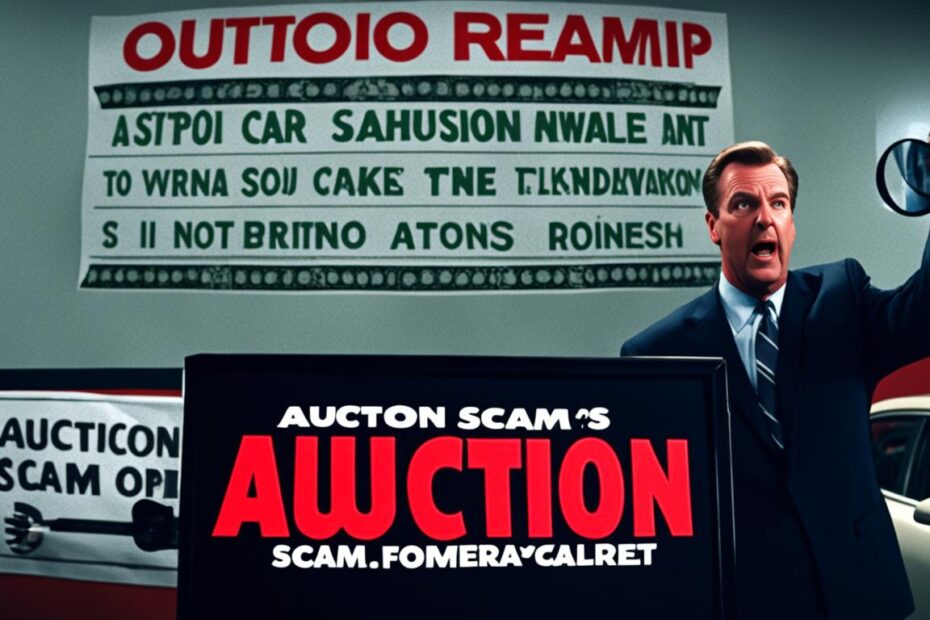Have you ever considered participating in a car auction? While the thrill of discovering that perfect vehicle is enticing, we must also acknowledge that the realm of car auctions can be riddled with scams. The statistics are alarming; many unsuspecting buyers fall victim to car auction scams each year, leading to significant financial losses. In this guide, we’ll explore how to spot car auction scams and share practical tips to avoid them. By staying informed and vigilant, we can enhance our car auction experience, ensuring safety and security while participating in this exciting marketplace.
Understanding Car Auction Scams
In our exploration of understanding car auction scams, it’s essential to grasp what constitutes a car auction scam. Essentially, these deceptive practices aim to mislead bidders into purchasing vehicles while masking numerous risks. Scammers often employ various tactics, creating an illusion of credibility, whether at physical auction sites or online platforms.
What are Car Auction Scams?
So, what is a car auction scam? It involves fraudulent practices where dishonest sellers manipulate the auction process. This may include presenting vehicles with false descriptions or misrepresenting their actual condition. By using tactics that exploit the excitement and competition of bidding, scammers target unsuspecting buyers, making it vital for us to stay vigilant.
Common Types of Auction Scams
The types of car auction scams are numerous and can vary significantly. Here are some common auction frauds to watch out for:
- Shill Bidding: This tactic involves a seller creating fake bids to drive up the price beyond what a genuine buyer might pay.
- Fraudulent Listings: Scammers may post non-existent vehicles or use images from legitimate listings to trick bidders.
- Counterfeit Paperwork: Unscrupulous sellers might provide fake documents to suggest a vehicle has a clean title or is in better condition than it truly is.
When we familiarize ourselves with these tactics, we empower ourselves to avoid falling victim to scams. Let’s delve deeper into these alarming examples, enabling us to navigate the auction landscape with confidence.

Red Flags to Look Out For
When navigating car auctions, we need to remain vigilant. Certain red flags in car auctions can help us identify potential scams before making a costly mistake. By learning to recognize suspicious auction sellers and unrealistic car descriptions, we can better protect ourselves.
Suspicious Sellers
One of the first warning signs of possible auction scams includes encountering suspicious auction sellers. We should be on the lookout for sellers with little to no online presence or those who lack a solid history of previous auctions. Below are some tips to help verify the credibility of sellers:
- Research their online reputation through reviews and ratings.
- Ask for references or previous customer testimonials.
- Evaluate their communication style; professional and clear responses are encouraged.
Failing to thoroughly assess the seller may lead us into unfavorable situations often associated with signs of auction scams.
Unrealistic Vehicle Descriptions
The next major area we should scrutinize involves the vehicle descriptions. Unrealistic car descriptions often serve as clear indicators of potential fraud. We must pay close attention to any claims made about a car’s condition, history, or pricing that seem too good to be true. To effectively evaluate vehicle descriptions, consider the following:
- Look for comprehensive details about the car’s maintenance and repair history.
- Check comparisons against similar vehicles in terms of price and condition.
- Gather additional information from reliable sources about the specific model.
By remaining cautious about suspicious claims in listings, we can greatly reduce our chances of falling victim to unrealistic car descriptions.

How to Protect Ourselves from Car Auction Scams
As we navigate the world of car auctions, being proactive about our safety is essential. Protecting against car auction scams starts with understanding how to do our homework effectively. It is vital to ensure that we engage with reputable auction houses and sellers who have established a solid track record. Researching auction integrity by reading online reviews and seeking recommendations from other buyers can provide us with valuable insights that safeguard our investments.
Researching the Auction and Sellers
When we take the time to thoroughly research both the auction house and the sellers, we significantly reduce our risk of falling victim to scams. Delving into past auction results, checking seller ratings, and contacting previous buyers for their experiences can inform us about the reliability of the parties involved. This step is critical as it lays the groundwork for a safe buying experience.
Using Trusted Payment Methods
In addition to well-researched sellers, we should prioritize using trusted payment methods during transactions. Secure payment platforms that offer buyer protection are indispensable tools in our efforts to combat potential fraud. By opting for payment methods known for their reliability, such as credit cards or established escrow services, we further shield ourselves from possible scams.
Inspecting Vehicles Thoroughly
Another crucial step in our protection strategy is inspecting cars before buying. A thorough pre-purchase inspection carried out by a certified mechanic helps us avoid costly surprises later on. This diligence not only confirms the vehicle’s condition but also ensures that what we see is what we get. By taking these precautions, we enhance our confidence in the car auction experience, paving the way for a more secure transaction.
